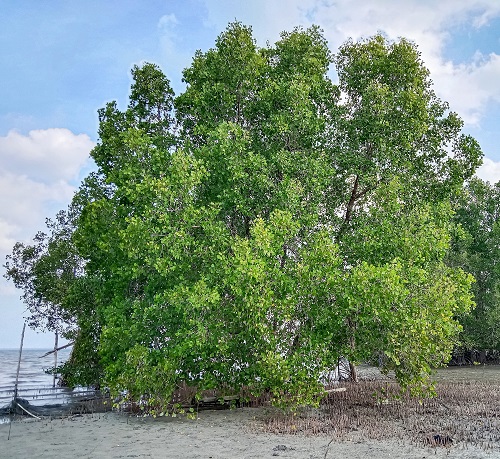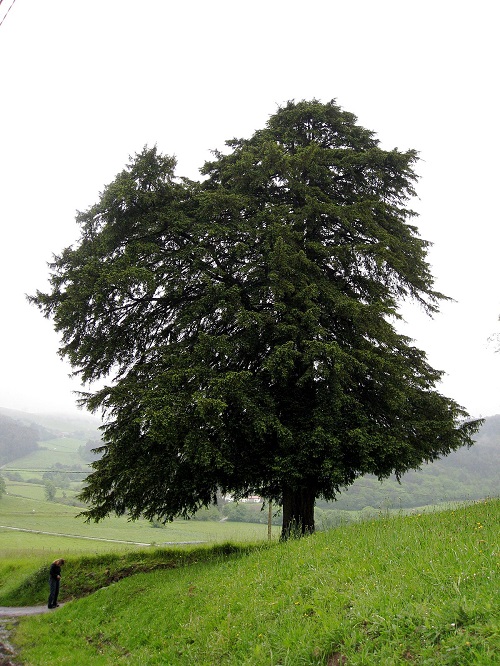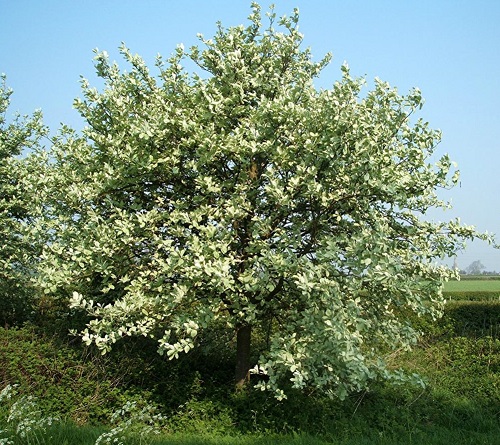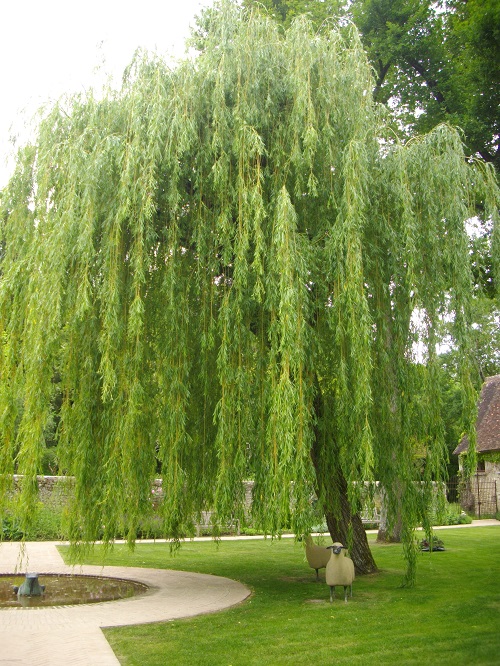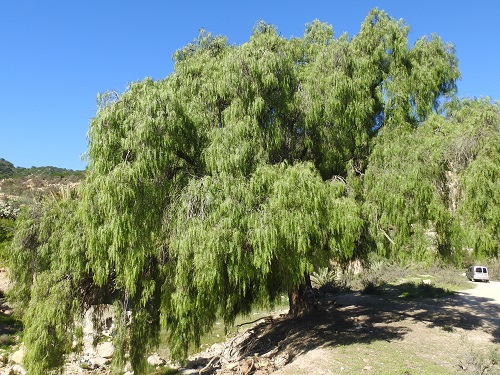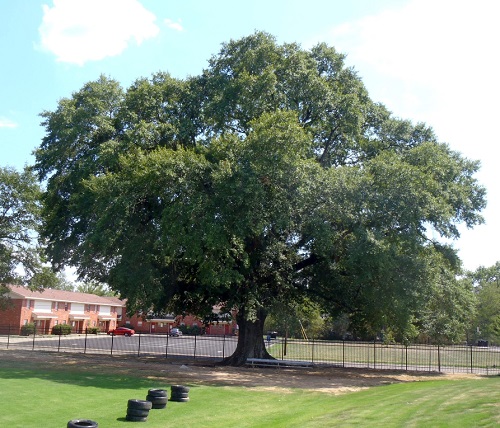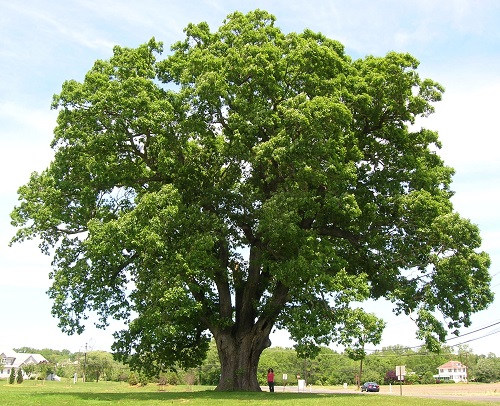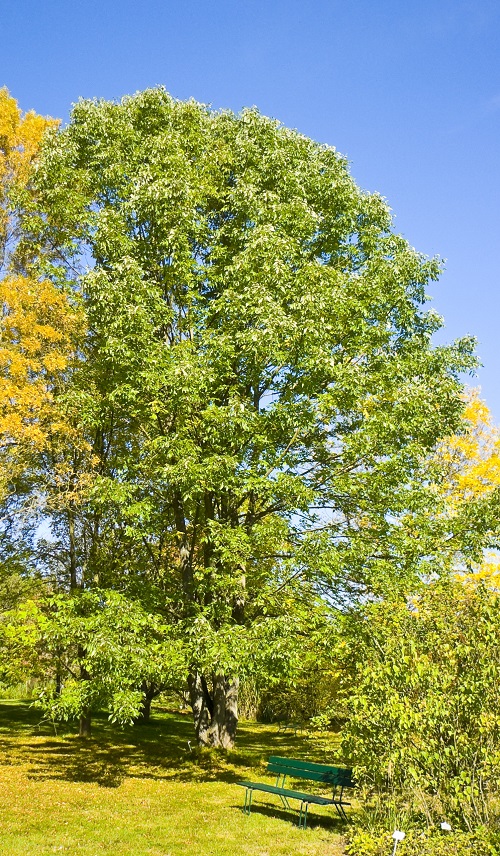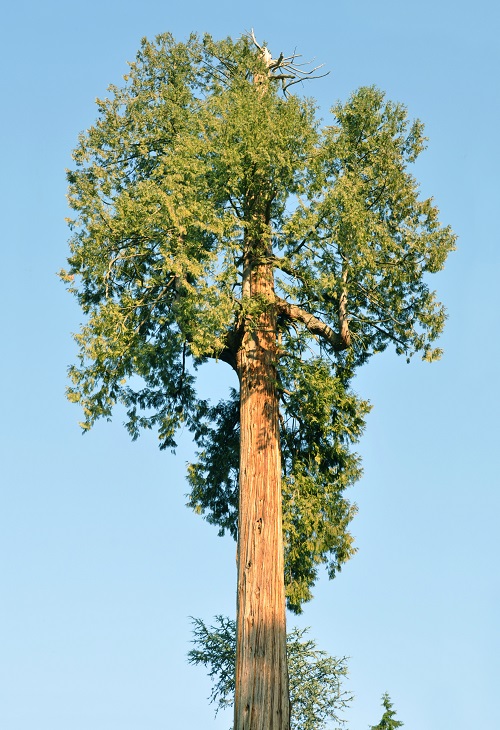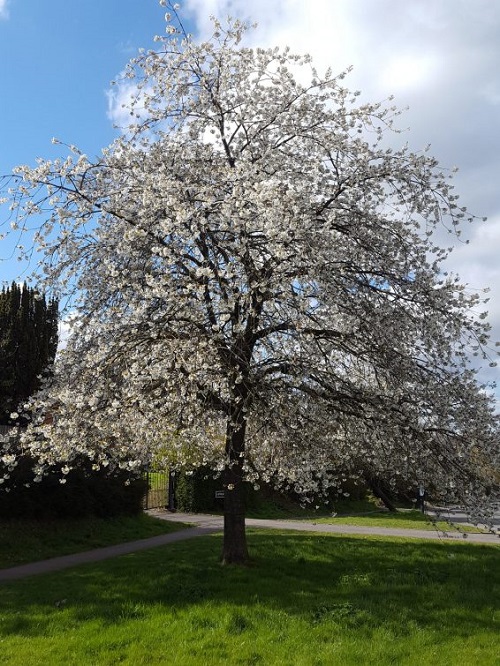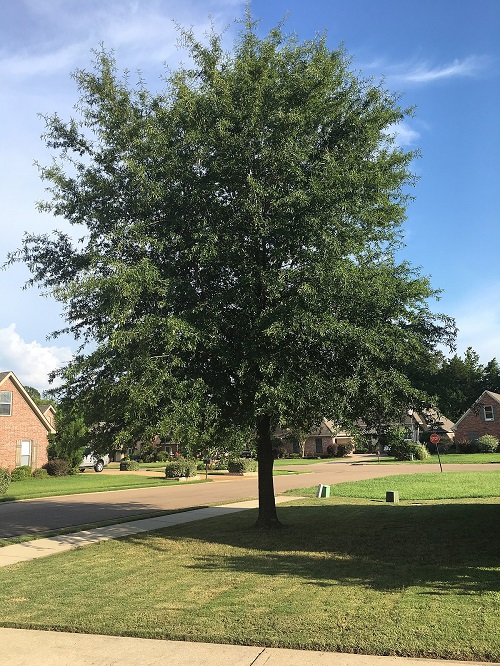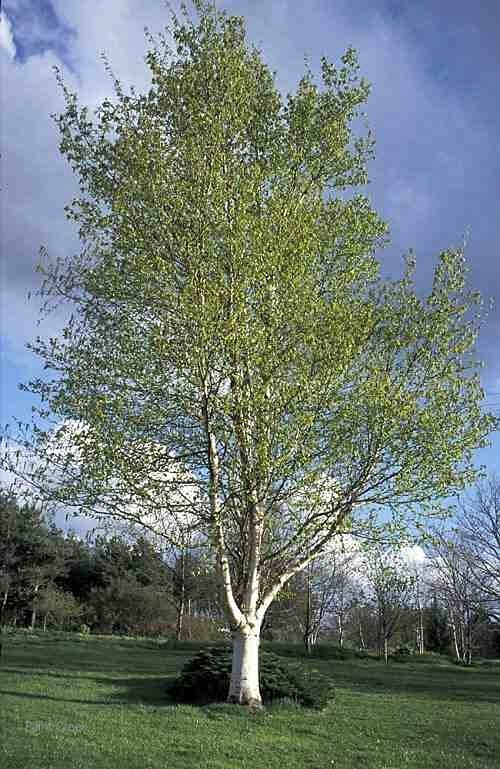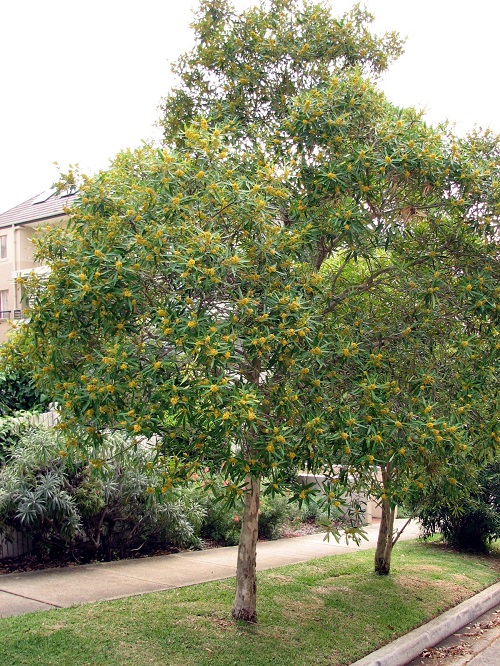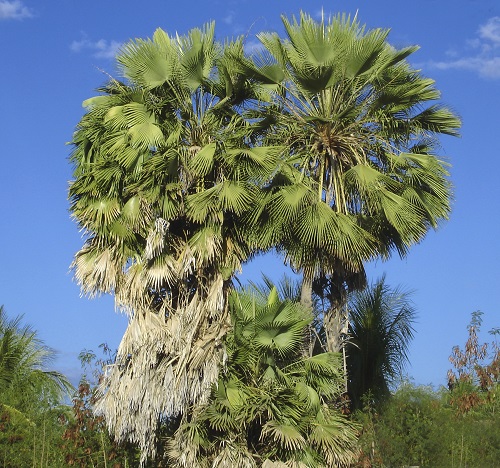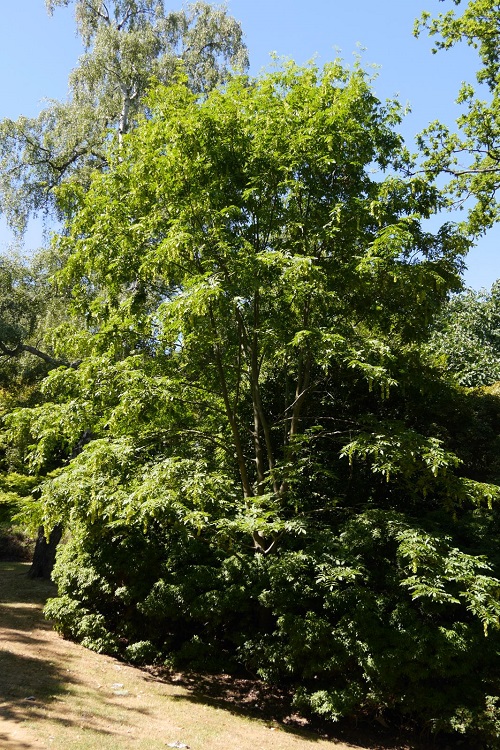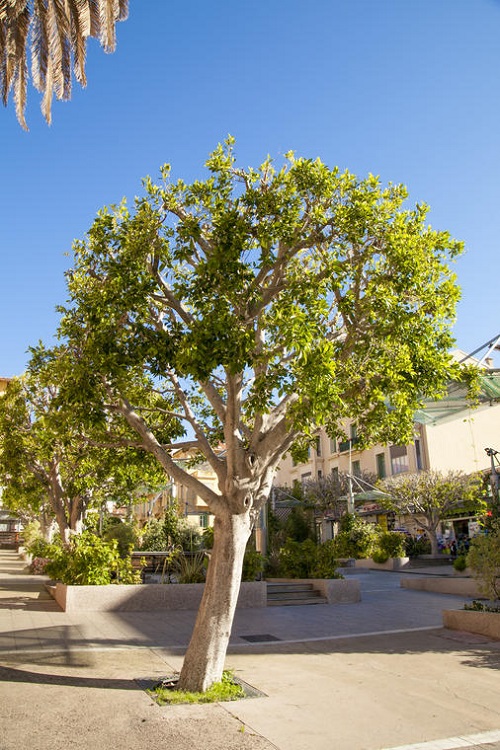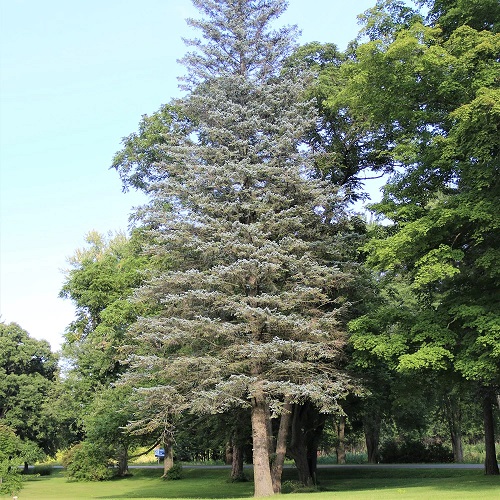Check out this informative article to discover why these Trees That Start with W deserve a spot in your garden!
If you’re an avid gardener looking to diversify your plant collection, then you must browse this list of trees that start with the letter W.
Trees That Start with W
1. White Mangrove Tree
Botanical Name: Laguncularia racemosa
The white mangrove produces leathery leaves and fragrant white blossoms. This tree can reach heights up to 30 to 40 feet in full sunlight and a well-drained potting medium. Laguncularia racemosa provides a habitat for fish, crustaceans, and birds.
2. Whiteberry Yew
Botanical Name: Pseudotaxus chienii
Pseudotaxus chienii is an evergreen shrub or small tree in southeastern China. This conifer features dark green, needle-like leafage and white berries. Grow this botanical specimen in moist, well-drained soil and partial shade for lush foliage.
3. Whitebeam
Botanical Name: Sorbus aria
The whitebeam tree, scientifically known as Sorbus aria, boasts grayish-white bark and serrated, elliptical leaves. In the spring, this tree beautifies the landscape with clusters of creamy-white flowers, followed by small red berries in the fall.
4. Weeping Wilow
Botanical Name: Salix babylonica
Weeping willow is adored by gardening enthusiasts for its drooping branches, slender foliage, and catkins. This tree is perfect for creating a picturesque setting around ponds, lakes, and streams.
5. White Willow
Botanical Name: Salix alba
White willow, native to Europe and Western Asia, is a deciduous tree with grey-brown bark and foliage with silvery undersides. This fast-growing tree is adaptable to various soil conditions. It’s found near water bodies such as rivers and ponds.
6. Wingnuts
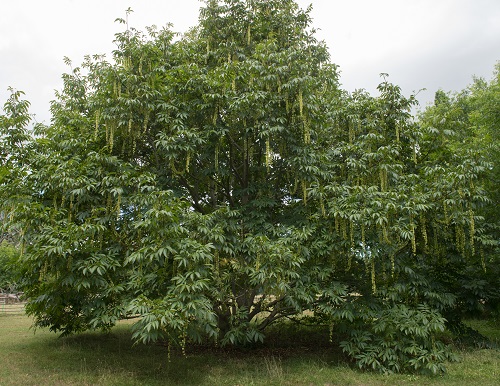
Botanical Name: Pterocarya spp.
The Pterocarya genus, or wingnuts, comprises deciduous trees indigenous to Asia. These botanical gems are adorned with pinnately compound leaves and catkins.
7. Witch-Hazel Tree
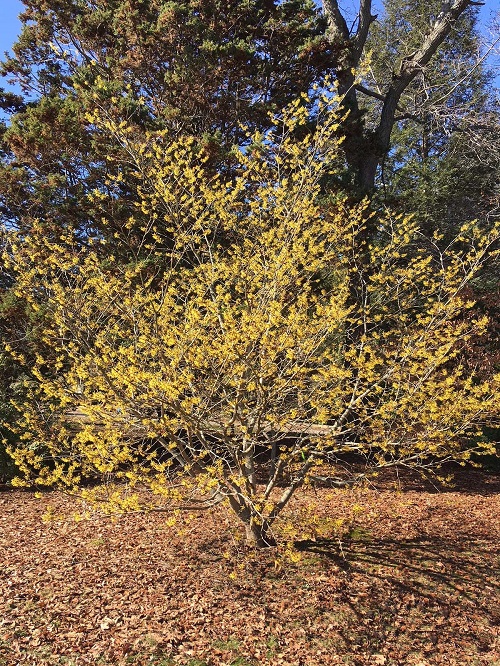
Botanical Name: Hamamelis virginiana
A member of the Hamamelidaceae family, witch hazel is a small deciduous tree that grows along woodland margins and stream banks. It boasts broad, wavy-edged foliage that becomes yellow in the fall.
8. Water Oak
Botanical Name: Quercus nigra
Quercus nigra is a common sight in wet and swampy conditions. This tree is vital for various wildlife species as a habitat and food source.
9. White Oak
Botanical Name: Quercus alba
White oak has a dense canopy with lobed leaves, grayish-white bark, and acorns, which is a vital food source for various wildlife. Besides its ecological importance, its wood is used for furniture and barrel production.
10. White Ash
Botanical Name: Fraxinus americana
Fraxinus americana is a North American specimen with compound leaves and winged fruits. Its wood is used to manufacture baseball bats and tool handles.
11. Western Red Cedar
Botanical Name: Thuja plicata
Western red cedar is an iconic conifer with a towering presence, aromatic, scale-like leaves, and small cones. Its durable and decay-resistant wood is popular for many applications, from building materials to canoes.
12. Wild Service Tree
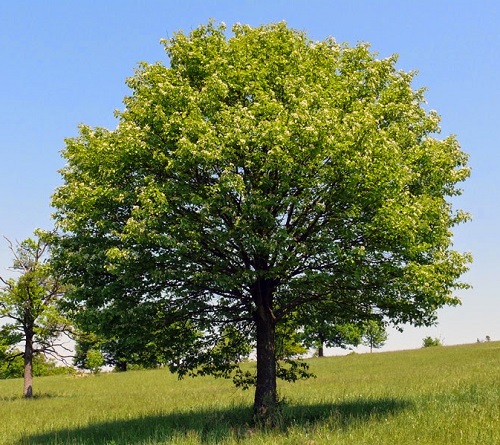
Botanical Name: Sorbus torminalis
Featuring serrated leaves, white flowers, and red fruits, the wild service tree is a sight to behold. Related to the Rosaceae family, it grows in mixed deciduous forests and limestone hills.
13. Wild Cherry
Botanical Name: Prunus avium
Wild cherry is a European tree with glossy foliage and clusters of white blossoms. Its wood is is sought after for woodworking and furniture making.
14. Winterberry
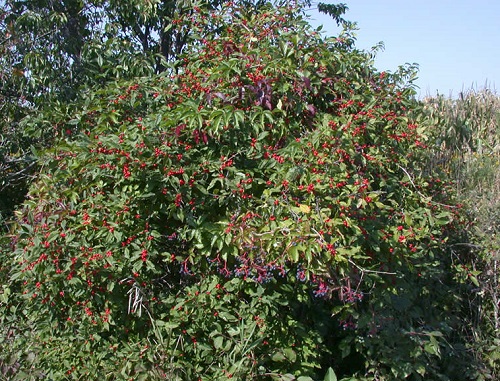
Botanical Name: Ilex verticillata
Ilex verticillata, or Winterberry, is a slow-growing deciduous tree with red berries, a vital food source for birds and small mammals. This drought-tolerant tree loves moist, acidic soil with good drainage, partial shade, or full sun.
15. Willow Oak
Botanical Name: Quercus phellos
Quercus phellos is a member of the Fagaceae family with willow-like leaves and yellowish-green blooms. It can grow up to 40–75 feet near rivers and streams in its native place.
16. White Birch
Botanical Name: Betula papyrifera
Indigenous to North America, Betula papyrifera sports striking white bark and dark green foliage that turns yellow to golden yellow in fall. This tree is often used for ornamental purposes.
17. Water Gum
Botanical Name: Tristaniopsis laurina
Make your backyard stand out with the glossy, leathery leaves and yellow flowers of water gum. This 20-foot-tall specimen is admired among gardeners for its ornamental value.
18. Wax Palm
Botanical Name: Copernicia prunifera
Copernicia prunifera sports fan-like foliage, round black fruits, and a circular tree crown. This wonderful palm variety is prized for its hardy nature and ability to thrive in arid conditions.
19. Wheel Wingnut
Botanical Name: Cyclocarya paliurus
The wheel wingnut is a deciduous tree with winged fruits and serrated compound leaves. Its foliage has various medicinal benefits due to polysaccharides, flavonoids, and saponins.
20. White Jade Orchid Tree
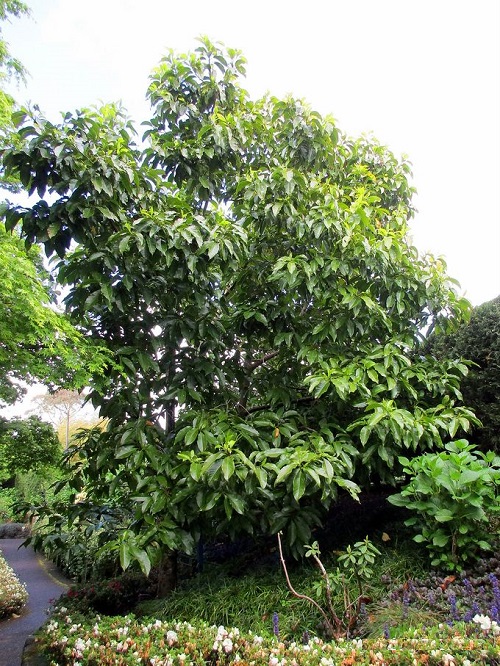
Botanical Name: Magnolia alba
A hybrid of Magnolia champaca and Magnolia Montana, the white jade orchid is an evergreen tree with elliptical leafage. It’s prized for its beautiful white flowers and medicinal properties.
21. Weeping Fig
Botanical Name: Ficus benjamina
The weeping fig can grow up to 60 feet tall with a round crown and glossy, ovate leaves. This specimen can be grown indoors as a bonsai.
22. Western Hemlock
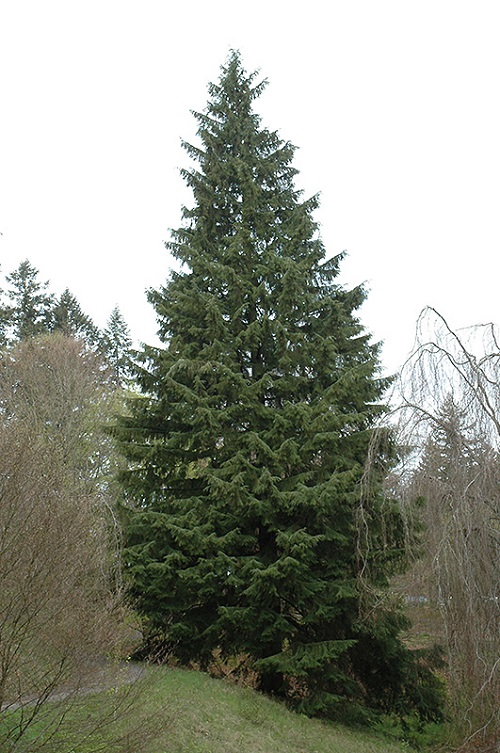
Botanical Name: Tsuga heterophylla
Western hemlock offers needle-shaped foliage and tiny cones. This tall tree also features strong, straight trunk and fine-grained wood. It prefers moist, cool climatic conditions for best growth.
23. White Poplar
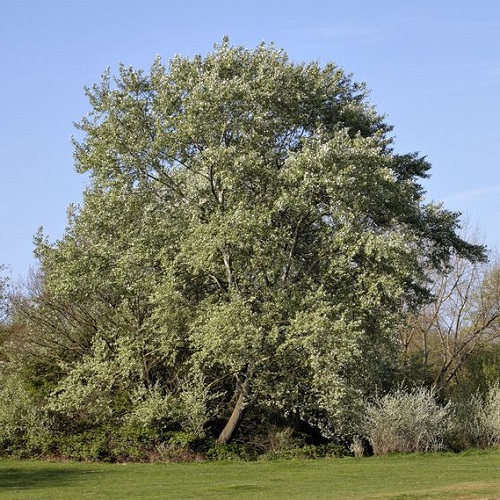
Botanical Name: Populus alba
Populus alba, scientifically known as white poplar, is famous for its white bark and silvery underside foliage. This conifer tree is planted for ornamental value and excellent shade.
24. White Spruce
Botanical Name: Picea glauca
Adorned with needle-like, green to bluish-green leaves and cylindrical cones, white spruce can grow up to 24 m. It can be used for hedging purposes.

